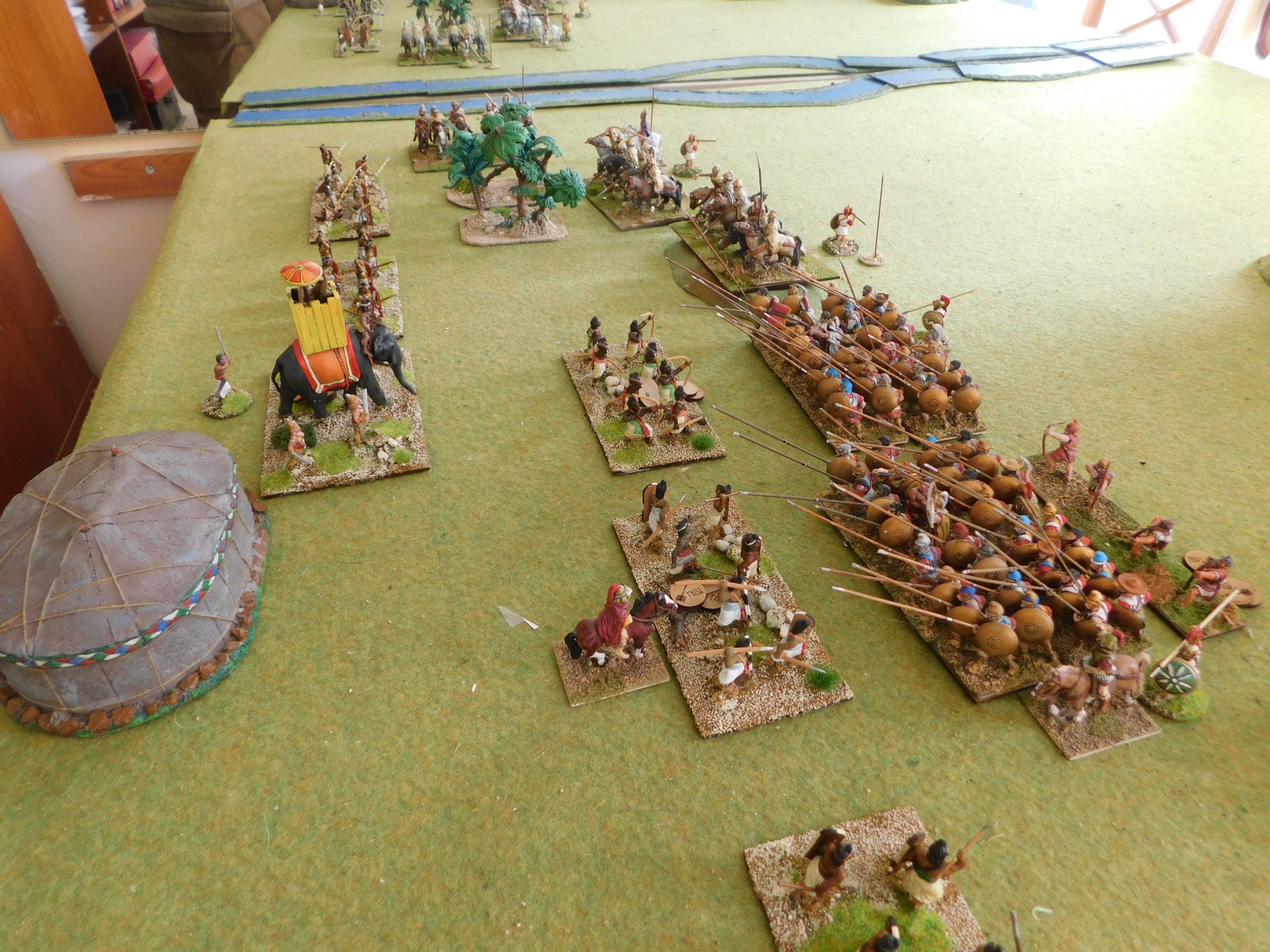AAR TTS: Classical Indians vs Alexander's Macedonians
/Off to Peter’s house for a three game marathon with him, Si and Caydn. The idea was simple: two teams of two, individual battles in the morning, one giant game in the afternoon.
My first game, therefore, was to take the Classicial Indians into battle against Peter’s Macedonians.
I was out-scouted, so set up with my powerful escorted elephants on my left flank, standard infantry and normal elephants in the centre, and my chariots and cavalry on the right. Opposite my left flank were the dread Companions, in the centre the phalanx block, and on the right several units of light horse.
My plan was for the left flank and centre to hold the Macedonians at bay whilst my chariots and cavalry dealt with the light horse and then swung round to take his phalanx in the flank…and it so almost worked!
As the battle began, his Companions and Phalanx did indeed come forward. I held back my left and left-centre brigades, but was still engaged quite early on. My chariots and cavalry began dealing with the light horse opposite them, but were too slow to do so, and although my right-centre brigade did start turning the Phalanx’s flank, it just didn’t seem to be happening fast enough.
The strong Macedonian units facing my left and left-centre began chewing me up, and although I now had infantry in a good flanking position, my chariots and cavalry were still trying to mop up the last of his lights out on the right.
I did manage to take out one Phalanx, but ran out of medals on the left and in the centre before I could get everything I had on the right back and into his flank. Unfortunately my army crumbled before that could happen, and I lost the game 4:12.
We both agreed that if I’d managed to hold out on my left and centre for just one more turn, then things would have been very different (you can see my veteran heavy chariots posed to sweep his troops off the table in the picture bottom right of the gallery above) but it was not to be. A great game, though, and much closer than the result would suggest.













